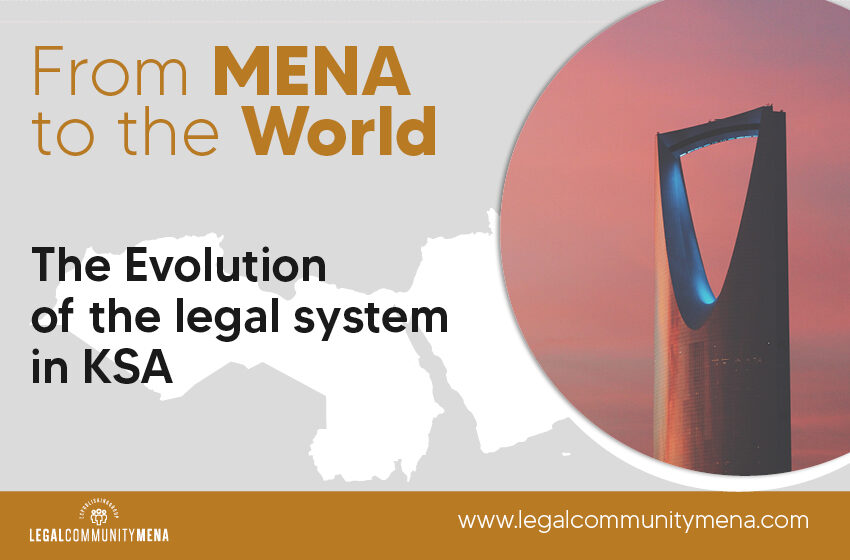The Role of Islamic Law (Sharia) in Saudi Legislation: How Are The Laws Made In Saudi Arabia

Islamic law, or Sharia, forms the foundational legal framework of Saudi Arabia. Its influence permeates all aspects of Saudi legal life, shaping legislation, judicial processes, and societal norms. Understanding the role of Sharia is crucial to comprehending the Saudi legal system.
How are the laws made in saudi arabia – Sharia, derived from the Quran and the Sunnah (the Prophet Muhammad’s teachings and practices), Artikels principles governing various facets of life, including personal status, criminal justice, commercial transactions, and governance. The fundamental principles emphasize justice, fairness, and the preservation of religious and societal values. Its application in Saudi Arabia, however, is complex and involves a nuanced interpretation and implementation process, often influenced by historical context and contemporary challenges.
Sharia Interpretation and Application in Legislation
The interpretation and application of Sharia in Saudi Arabia are primarily entrusted to qualified scholars of Islamic jurisprudence (fuqaha). These scholars, often part of the Council of Senior Scholars, advise the government on legal matters, ensuring that new laws align with their understanding of Islamic principles. The legislative process involves a careful consideration of relevant Sharia texts, scholarly opinions (fatwas), and customary practices. This process is not static; interpretations can evolve over time, reflecting changing societal needs and scholarly discourse. The government ultimately has the authority to enact legislation, but it typically seeks the religious legitimacy provided by the endorsement of leading Islamic scholars.
Examples of Laws Directly Derived from Sharia Interpretations
Many aspects of Saudi law directly reflect interpretations of Sharia. For example, laws related to marriage, divorce, inheritance, and family matters are heavily influenced by Sharia principles. Criminal law, including punishments for theft, adultery, and other offenses, also draws directly from Sharia interpretations, although the specific application and severity of punishments may vary based on scholarly interpretations and judicial discretion. Similarly, aspects of banking and finance, such as prohibitions on interest (riba), are grounded in Sharia principles and implemented through specific regulations.
Comparison of Sharia’s Application with Other Legal Systems
Unlike many Western legal systems that primarily rely on codified statutes and precedent, the Saudi legal system incorporates Sharia principles as a primary source of law. While Saudi Arabia does have codified laws, these are often informed and shaped by interpretations of Sharia. This differs significantly from secular legal systems that prioritize separation of religion and state. However, it’s important to note that the application of Sharia in Saudi Arabia isn’t monolithic; there’s a degree of flexibility and adaptation to modern challenges. The interaction between Sharia and modern legal concepts is an ongoing process of interpretation and development. Furthermore, the influence of customary law and international treaties also plays a role in shaping the overall legal landscape.
The Process of Law Creation and Amendment

The creation and amendment of laws in Saudi Arabia is a complex process, reflecting the interplay between the country’s unique governance structure and its adherence to Islamic principles. Understanding this process requires examining the roles of various governmental bodies and the influence of Sharia law, as previously discussed. The following details the procedural steps involved.
The process of law creation and amendment in Saudi Arabia involves several key stages, ensuring a degree of scrutiny and deliberation before legislation is enacted or modified. This system, while rooted in tradition, also reflects efforts towards modernization and transparency in legal frameworks.
Stages of Law Creation
The creation of a new law typically begins with the identification of a need for legal reform or the introduction of new legislation. This could stem from various sources, including royal decrees, ministerial proposals, or recommendations from advisory councils. The proposal then undergoes a rigorous review process involving several government entities before it is ultimately approved.
- Proposal and Drafting: A new law is typically proposed by a government ministry or other relevant body. This proposal is then drafted into a formal legal document, often with the assistance of legal experts.
- Council of Ministers Review: The drafted law is presented to the Council of Ministers for review and discussion. Amendments and revisions may be made at this stage.
- Royal Approval: Following approval by the Council of Ministers, the draft law is submitted to the King for final approval and signature. This royal assent is the final step in the legislative process.
- Publication and Enforcement: Once signed into law, the new legislation is officially published in the Official Gazette, making it legally binding and enforceable throughout the Kingdom.
Stages of Law Amendment
Amending existing laws follows a similar process, beginning with the identification of the need for change. This might be prompted by changing social conditions, technological advancements, or judicial interpretations. The amendment proposal then moves through the various stages of review and approval.
- Identification of Need for Amendment: A need for amendment might arise from judicial rulings highlighting ambiguities, or from societal changes requiring updated legislation. This often originates from government ministries or judicial bodies.
- Drafting of Amendments: Legal experts draft the proposed amendments, carefully considering their implications and ensuring consistency with existing legal frameworks.
- Council of Ministers Review of Amendments: The proposed amendments are submitted to the Council of Ministers for deliberation and approval. This stage involves thorough discussion and potential revisions.
- Royal Assent for Amendments: The King’s approval is required for the amendments to become legally effective. This final step formalizes the changes to the existing law.
- Publication and Enforcement of Amendments: The amended law is published in the Official Gazette, officially incorporating the changes and making them legally binding.
Flowchart of Law Creation and Amendment
A flowchart depicting the process would show two parallel paths, one for creating a new law and one for amending an existing law. Both paths would converge at the stage of Royal Approval, followed by publication and enforcement. Each stage would be represented by a box, with arrows indicating the flow of the process. For example, the “Proposal and Drafting” stage would be followed by an arrow leading to the “Council of Ministers Review” stage, and so on. The flowchart would clearly show the linear progression of each step and the final outcome of a newly enacted or amended law. The similarity in the later stages of both paths would be visually apparent.
Enforcement and Judicial Review of Laws
The Saudi judicial system plays a crucial role in ensuring the effective implementation and interpretation of the Kingdom’s laws, a complex framework blending Islamic Sharia and codified statutes. This system, while undergoing continuous reform, faces inherent challenges in balancing traditional legal interpretations with the demands of a modernizing nation.
The Saudi judiciary interprets and enforces laws through a hierarchical court system. Lower courts handle initial cases, with appeals progressing to higher courts, ultimately reaching the Supreme Court. Judges, appointed by the King, are responsible for applying the relevant legal provisions to specific cases. This process involves careful consideration of both codified law and relevant Sharia principles, often requiring intricate legal reasoning and interpretation, especially in areas where the intersection of these two legal systems is complex. The interpretation of Sharia, in particular, can be a source of both strength and challenge, depending on the specific legal school of thought applied and the context of the case.
The Mechanisms for Judicial Review
Judicial review in Saudi Arabia is not as comprehensively established as in some Western systems. There isn’t a formal system of judicial review where the courts can directly strike down laws passed by the legislature. However, the judiciary can influence the application and interpretation of laws through its rulings. Judges, when faced with ambiguous or potentially conflicting legal provisions, exercise their judgment to determine the most appropriate application within the existing legal framework. This process of interpretation, although not explicitly a form of judicial review in the conventional sense, can effectively shape the practical application of laws. The Supreme Court’s rulings carry significant weight and provide guidance to lower courts, setting precedents that influence future legal decisions.
Challenges in Enforcing Laws Based on Sharia Interpretations
Enforcing laws based on Sharia interpretations presents unique challenges. Differing interpretations of Islamic texts can lead to variations in legal application across different courts or even within the same court. This can result in inconsistencies and a lack of predictability in legal outcomes. Further, the evolving social and economic landscape of Saudi Arabia necessitates a continuous reevaluation of existing legal interpretations to ensure they remain relevant and just. The balance between maintaining traditional religious values and adapting to modern societal needs requires careful consideration and ongoing dialogue within the legal and religious communities. For example, the interpretation and application of laws related to personal status, such as marriage and divorce, can be particularly complex and subject to diverse interpretations.
The Independence of the Judiciary
The independence of the Saudi judiciary is a subject of ongoing discussion and reform. While the judiciary operates within a system where the King holds ultimate authority, efforts are being made to enhance judicial independence and transparency. The establishment of specialized courts and the ongoing training and development of judges are aimed at improving the quality and consistency of judicial decisions. However, the close relationship between the judiciary and the executive branch remains a factor that can influence judicial decisions, particularly in cases with significant political or social implications. The degree of actual independence, therefore, remains a complex and nuanced issue, subject to ongoing assessment and reform initiatives.
The Influence of Royal Decrees and Regulations

Royal decrees and ministerial regulations play a significant role in shaping the Saudi Arabian legal landscape, supplementing and interpreting the broader framework of Islamic law and codified statutes. They provide a mechanism for swift responses to evolving societal needs and policy shifts, demonstrating the dynamic interplay between religious principles and practical governance.
Royal decrees, issued by the King, hold supreme legal authority. They are binding and directly shape legal policy across various sectors. Ministerial regulations, on the other hand, are issued by government ministries to implement and detail the provisions of laws and royal decrees. These regulations offer a more granular level of legal specification, providing practical guidance for implementation.
The Nature and Legal Effect of Royal Decrees, How are the laws made in saudi arabia
Royal decrees are the highest form of legal instrument in Saudi Arabia. They possess the force of law and are directly binding on all individuals and entities within the Kingdom. These decrees can establish new laws, amend existing ones, or create entirely new legal frameworks. Their impact is immediate and comprehensive, often addressing matters of national importance requiring prompt action or significant policy changes. The process of issuing a royal decree typically involves consultation with relevant government bodies and legal experts, but the final authority rests solely with the King.
The Role of Ministerial Regulations in Supplementing Laws
Ministerial regulations act as a crucial bridge between broad legislative pronouncements and their practical application. They provide detailed rules, procedures, and guidelines for implementing laws and royal decrees. These regulations often clarify ambiguities, define operational specifics, and adapt general legal principles to specific contexts. For instance, a law might establish a new tax regime, while ministerial regulations would detail the specific tax rates, filing procedures, and penalties for non-compliance. This ensures the smooth and consistent enforcement of the law.
Examples of Royal Decrees Shaping Legal Policy
Numerous royal decrees have significantly shaped Saudi Arabia’s legal and social landscape. For example, decrees have established new legal frameworks for investment, commerce, and labor, promoting economic diversification and attracting foreign investment. Others have addressed issues related to women’s rights, education, and social welfare, reflecting the Kingdom’s ongoing reforms. The creation of specialized courts or agencies through royal decree is another common example, enhancing the judicial system’s efficiency and effectiveness. Specific examples, while readily available from official government sources, are omitted here due to their potentially sensitive nature and the need to avoid outdated information.
Hierarchy of Legal Instruments in Saudi Arabia
The following table illustrates the hierarchical structure of legal instruments within the Saudi Arabian legal system:
| Level | Instrument | Authority | Description |
|---|---|---|---|
| 1 | Constitutional Principles (Basic Law) | The King | Foundation of the legal system, outlining fundamental principles. |
| 2 | Royal Decrees | The King | Supreme legal authority, creating, amending, or repealing laws. |
| 3 | Laws (passed by the Shura Council and approved by the King) | The King & Shura Council | Codified legislation on specific topics. |
| 4 | Ministerial Regulations | Government Ministries | Detailed implementation rules for laws and royal decrees. |

Tim Redaksi